Configure Queries
When you add data to a corpus, the Query tab lets you experiment with different semantic search, summarization, and chat options. Whether you want to retrieve relevant information, generate summaries grounded in facts with Retrieval-Augmented Generation (RAG), or engage in conversational interactions, explore these options and configurations to find the optimal settings for your applications.
Search your Data
The Query tab enables you to perform searches against your data while testing different query configuration settings for retrieval and generation.
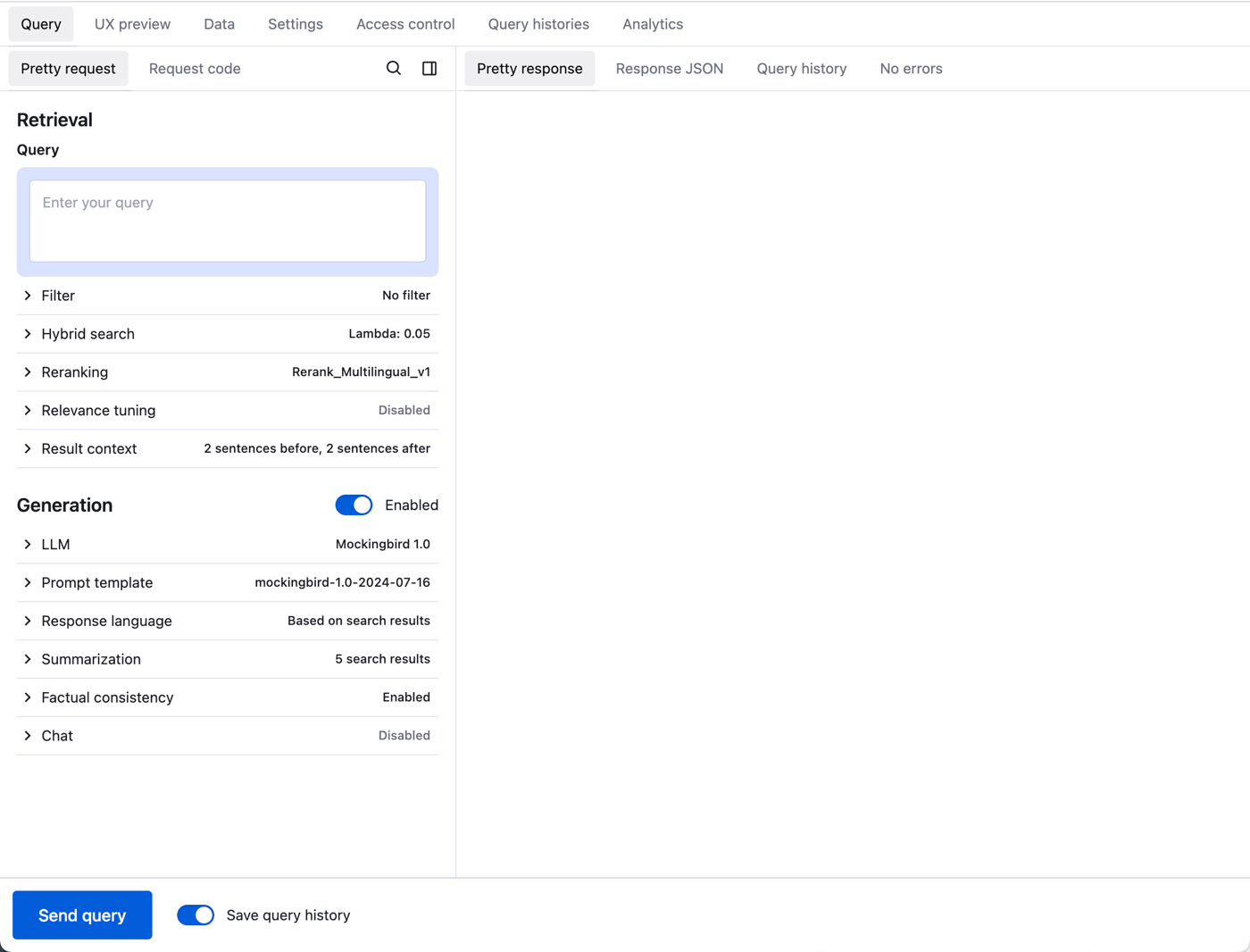
The Pretty Request and Request Code tabs allow you to view and copy the request code used for executing queries. This enables easy integration of query configurations into applications.
A magnifying glass icon allows you to locate specific controls. Use this icon to search and instantly locate a retrieval or generation setting. This is useful for navigating complex query configurations quickly.
Configure retrieval
The Retrieval section provides different configuration settings to tailor the query experience to your specific needs. For example, configuring filters, reranking results, and refining output context.
Enter your query
Enter a natural language search query in the Query field. You can either use the default retrieval and generation settings or experiment with different configurations.
Configure search filters
By default, no filter is applied to your query. Select Filter to
- Enter a custom filter expression
- Select predefined filter attributes to refine your search results.
- View Available filter attributes and Syntax examples.
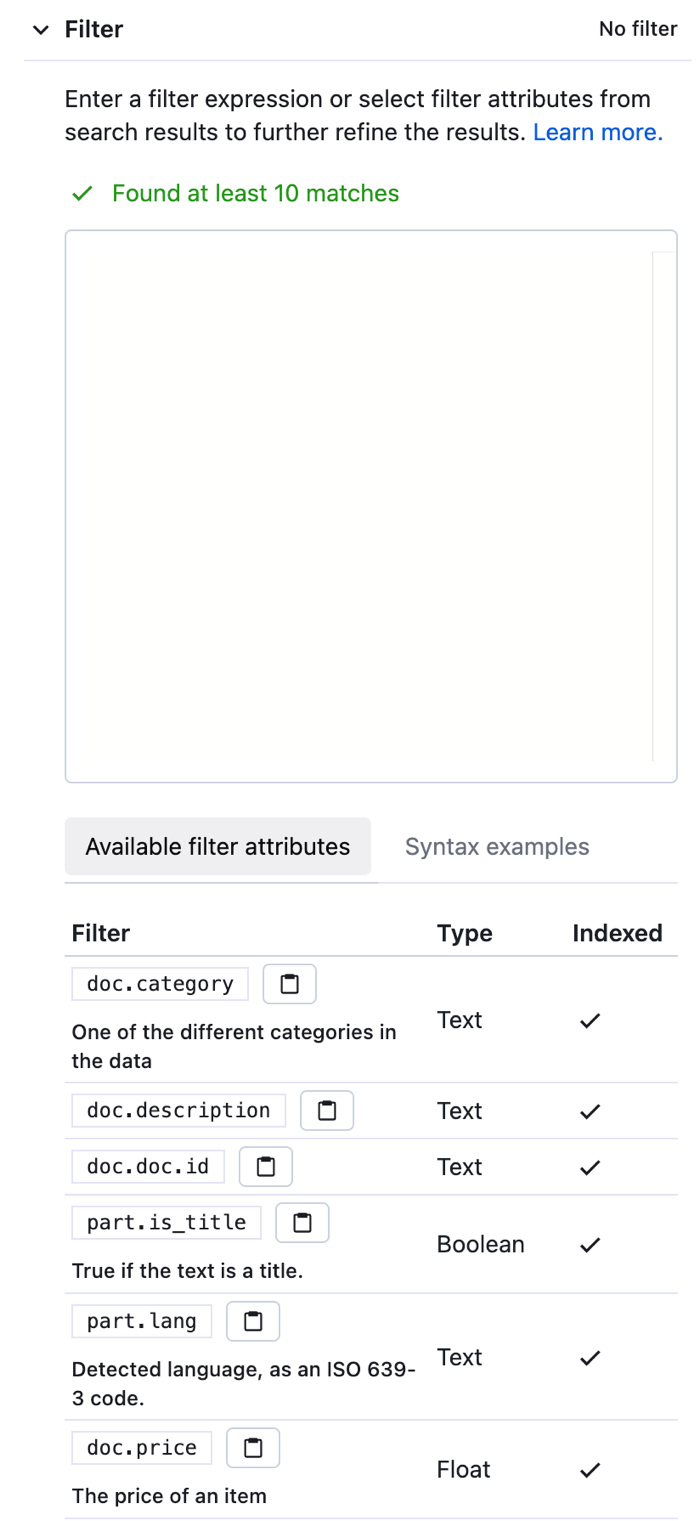
Configure hybrid search
Hybrid search improves retrieval accuracy by balancing neural search with keyword-based search using the Lambda option.
- Enable hybrid search to activate hybrid retrieval.
- Adjust the Lambda range from
0(pure neural search) to1(pure keyword-based search). - The recommended range is
0.005to0.0075. - By default, Lambda is set to
0.5.
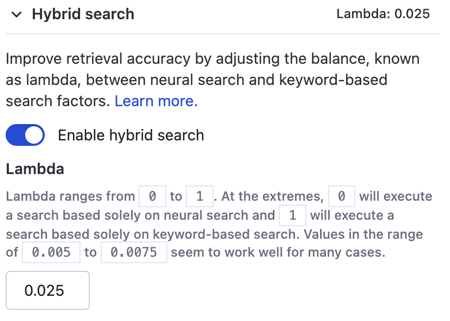
Reranking lets you rerank orders of search results also use our available rerankers:
- Multilingual Ranker – Optimized for multiple languages.
- User-Defined Function (UDF) Reranker – Customizable ranking function.
- Maximum Marginal Relevance (MMR) Reranker – Reduces bias by applying a diversity factor.
See Reranking more advanced details about our reranking capabilities.
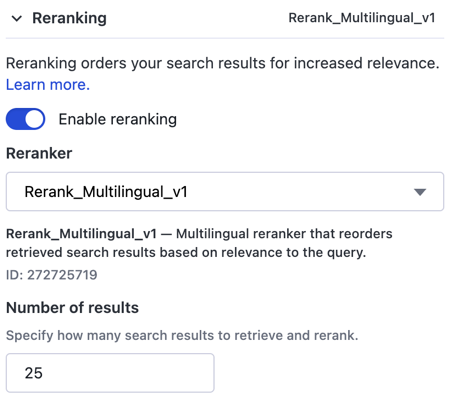
Configure relevance tuning
Fine-tune search relevance by adjusting custom dimension weights.
Enable relevance tuning to control how search results rank based on predefined relevance factors.
See Custom Dimensions for more details.
Configure result context
Control how much contextual information appears before and after matched search results:
- Sentences Before: Default: 2
- Sentences After: Default: 2
- Characters Before: Default: 0
- Characters After: Default: 0
If you use character-based limits, Vectara ensures that full sentences display to preserve meaning.
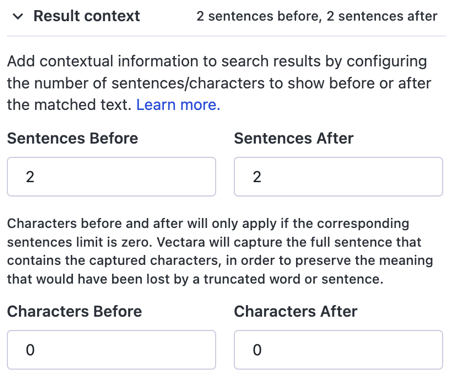
Configure generation
The Generation section shows the following options:
Configure model
Select a generation preset, LLM, and prompt template to use for the query:
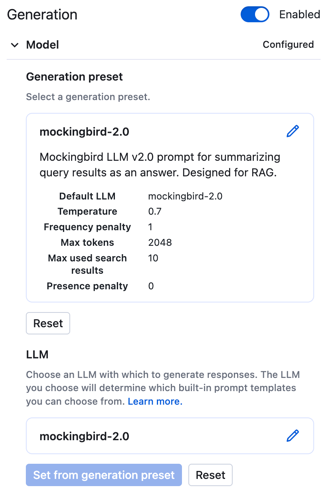
You can also copy the prompt template from the generation preset.
Configure summarization
Summarization uses Retrieval-Augmented Generation (RAG) to provide concise summaries in response to your queries. This can be particularly useful when you need an overview of the relevant information within your data.
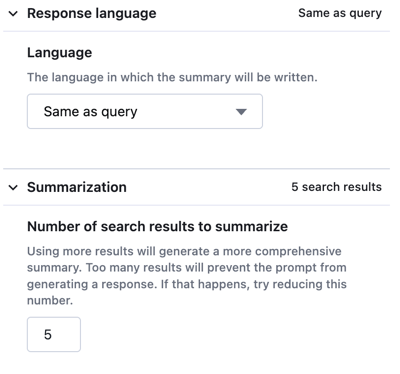
Configure evaluation
The Factual Consistency Score automatically evaluates and detects hallucinations in generated output.
- Score range:
0.0-1.0 - Higher score: More factually accurate responses
- Lower score: Greater probability of hallucinations
- Enable calculation of Factual Consistency Score: to monitor and improve response reliability.
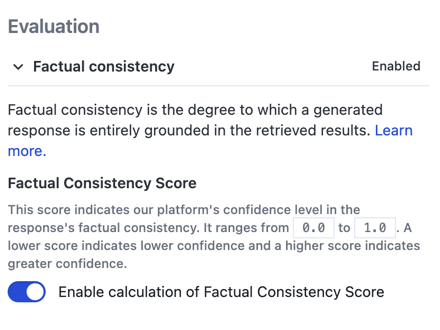
Configure chat
Chat enables you to engage in conversational interactions with your data. This can be particularly useful when you need to ask follow-up questions, clarify information, or explore your data in a more interactive manner.
Select Enable Chat to retain the conversational context across your queries.
Save query to history
Set this toggle on to generate a query history from your query. Vectara enables you to generate query histories from your queries. These are analyses of your queries that give you visibility into how Vectara executed your query through specific steps such as retrieval, reranking, and generation. This is important for troubleshooting issues, inspecting past queries, and optimizing configurations.
View the history of the query
- Ask questions of your data with Send query.
- Select the Analysis or Usage tab to see a list of query histories.
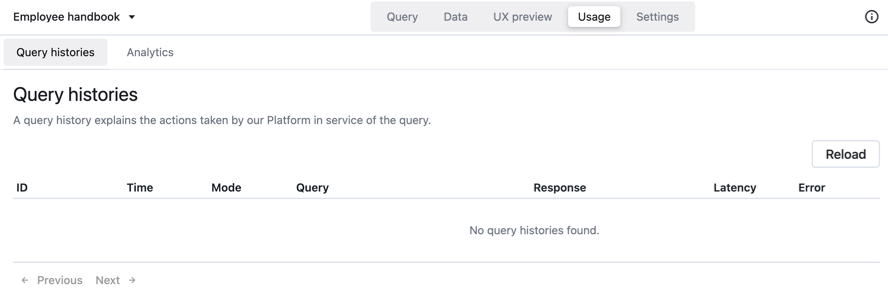
- Click Reload to refresh the list.
- Select an ID to reveal the query history for a specific query
the most recently executed query.
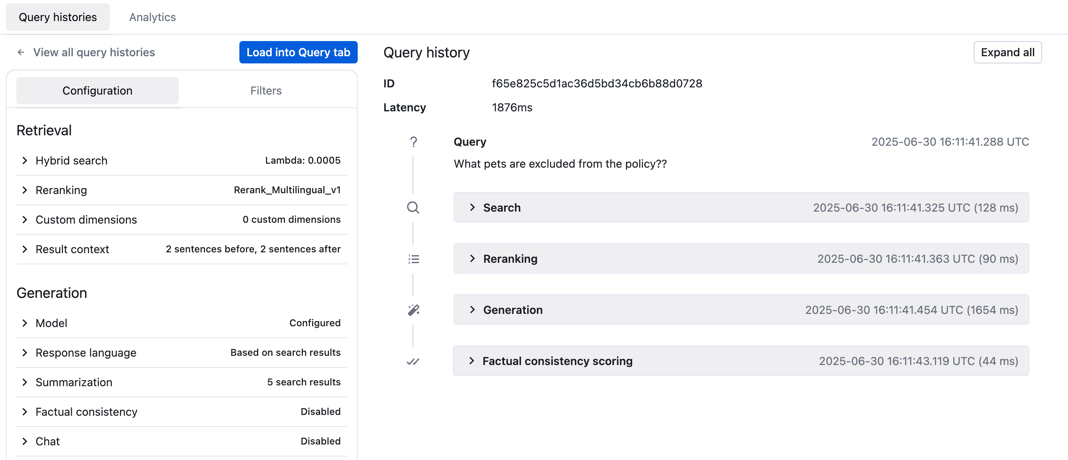
- View the complete breakdown of how the query was executed.
- Use this information to optimize your configuration and submit a new query.
Query results
After executing a query, the results appear in the output panel, which includes the following tabs:
- Pretty Response: Formatted view of the query response.
- Response JSON: Raw JSON representation of the query output.
- Analysis: Displays the query history analysis including the rephrased query (if IQR enabled), compiled prompt and query history.
- Errors: Displays encountered errors (if any).